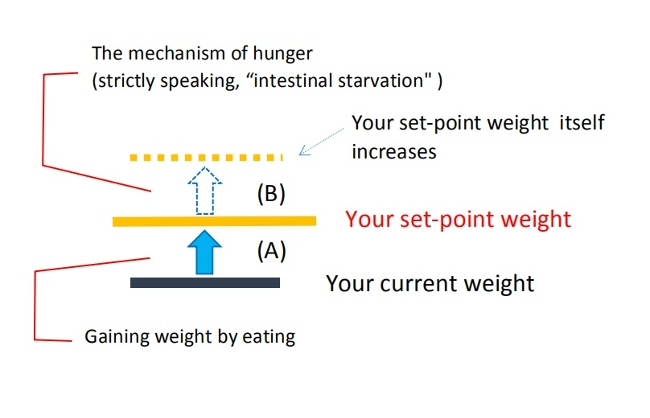Topics
10/10/2022
Does Obesity Run in the Family or Is It Due to the Living Environment?
Contents
- What was the relationship of weight between adoptees and adoptive parents?
- What was the weight of the twins raised apart?
- What do we consider a change in environment?: My thoughts
- Will the shape of your body from childhood continue?
<The bottom line>
Is obesity inherited from parents?
Let us recall our classmates in elementary school. To some extent, we can imagine, if not one hundred percent, that if the parents are thin, their children are often thin, and if the parents are fat, their children are often fat.
The question here is whether this is due to genetics or due to the living environment. Here is one such study I’d like to introduce.

1. What was the relationship of weight between adoptees and adoptive parents?
"Obese children often have obese siblings. Obese children become obese adults. Obese adults go on to have obese children. Childhood obesity is associated with a 200 percent to 400 percent increased risk of adult obesity. This is an undeniable fact. (*snip*)
Families share genetic characteristics that may lead to obesity. However, obesity has become rampant only since the 1970s. Our genes could not have changed within such a short time. Genetics can explain much of the inter-individual risk of obesity, but not why entire populations become obese.
Nonetheless, families live in the same environment, eat similar foods at similar times and have similar attitudes. Families often share cars, live in the same physical space and will be exposed to the same chemicals that may cause obesity–so-called chemical obesogens. For these reasons, many consider the current environment the major cause of obesity.

Conventional calorie-based theories of obesity place the blame squarely on this “toxic" environment that encourages eating and discourages physical exertion. Dietary and lifestyle habits have changed considerably since the 1970s (e.g. car, television, computer, fast food, high-calorie food, sugar, etc.).
Therefore, most modern theories of obesity discount the importance of genetic factors, believing instead that consumption of excess calories leads to obesity. Eating and moving are voluntary behaviors, after all, with little genetic input.
So-exactly how much of a role does genetics play in human obesity?"
(Jason Fung. The Obesity Code. Greystone Books, 2016, Page 21-2.)
"The classic method for determining the relative impact of genetic versus environmental factors is to study adoptive families, thereby removing genetics from the equation.(*snip*)
Dr. Albert J. Stunkard performed some of the classic genetic studies of obesity. Data about biological parents is often incomplete, confidential and not easily accessible by researchers. Fortunately, Denmark has maintained a relatively complete registry of adoptions, with information on both sets of parents.

Studying a sample of 540 Danish adult adoptees, Dr. Stunkard compared them to both their adoptive and biological parents.
If environmental factors were most important, then adoptees should resemble their adoptive parents. If genetic factors were most important, the adoptees should resemble their biological parents.
No relationship whatsoever was discovered between the weight of the adoptive parents and the adoptees.(*snip*)
Comparing adoptees to their biological parents yielded a considerably different result. Here there was a strong, consistent correlation between their weights.
The biological parents had very little or nothing to do with raising these children, or teaching them nutritional values or attitudes toward exercise. Yet the tendency toward obesity followed them like ducklings. When you took a child away from obese parents and placed them into a "thin" household, the child still became obese.(*snip*)
This finding was a considerable shock. Standard calorie-based theories blame environmental factors and human behaviors for obesity. Environmental cues such as dietary habits, fast food, junk food, candy intake, lack of exercise, number of cars, and lack of playgrounds and organized sports are believed crucial in the development of obesity. But they play virtually no role."
(Fung. The Obesity Code. Pages 22-3.)
2. What was the weight of the twins raised apart?
"Studying identical twins raised apart is another classic strategy to distinguish environmental and genetic factors. Identical twins share identical genetic material, and fraternal twins share 25 percent of their genes.
In 1991, Dr. Stunkard examined sets of fraternal and identical twins in both conditions of being reared apart and reared together. Comparison of their weights would determine the effect of the different environments.
The results sent a shockwave through the obesity-research community. Approximately 70 percent of the variance in obesity is familial.(*snip*)

However, it is immediately clear that inheritance cannot be the sole factor leading to the obesity epidemic.
The incidence of obesity has been relatively stable through the decades. Most of the obesity epidemic materialized within a single generation. Our genes have not changed in that time span.
How can we explain this seeming contradiction?"
(Fung. The Obesity Code. Pages 23-4.)
3. What do we consider a change in environment? : My thoughts
I think this is a very interesting study because it compared data from biological parents and adoptive parents.
However, can we assert from the results of this one alone that the influence of genetics was much greater and environmental factors were much less significant?
I believe, as Doctor Fung mentions, the rapid increase in obesity in recent years (since about 1970) has much to do with changes in our living environment (what we eat, irregular lifestyle,etc.),not the genes.

Even those who were slim in their youth may gain five or ten kilos in a short period of time at a certain age, triggered by something (living alone, marriage, parenting, stress from work, etc.). Some people put on weight every time they try dieting to lose weight.
In other words, many of us, in our hearts, have probably noticed that changes in eating habits or our living environment can change our body shape.
■What is the "change in environment" that causes a change in weight here?
The study considers a child living with adoptive parents or twins raised separately to be a "change in living environment," but I think there is a problem with this study.
If a family can afford to take in a child as adoptive parents, don't they have some money to spare and feed their adoptee a somewhat balanced diet three times a day?
Although what they eat and caloric intake may differ from family to family, those changes are not necessarily "environmental changes" that cause changes in weight. Just because the adoptive parents are thin does not mean that adoptees will become thin even if they eat the same diet.

On the contrary, I believe that a fundamental increase in weight and body shape occurs when one’s set-point weight itself goes up, which is induced by intestinal starvation.
And since at least three (+one) factors are required to induce intestinal starvation, living with adoptive parents alone does not necessarily alter one’s set-point weight.
[Related article]
In Japan over the past few decades, our traditional eating habits have been declining. Instead, Westernized eating and diverse work styles have become more prevalent.
Amid these changes, intestinal starvation is more likely to be induced when unbalanced diets (high in easily digestible carbohydrates and ultra-processed foods, and with a lack of vegetables, etc.) combines with irregular lifestyle habits (skipping breakfast, eating late at night, etc.).
This is what I would like to call the "environmental factors and human behaviors" for the recent obesity epidemic, and while genetic factors are, of course, undeniable, I believe that environmental factors are quite significant.
4. Will the shape of your body from childhood continue?

One thing to note here is that the body shape in childhood (say, around three to five years old) tends to continue into adulthood.
When I think back to my classmates in first and second grade, the girls and boys who were fat (although they were not big eaters) often have a similar body shape even decades later.
From my theory, that means that their set-point weight has not changed, and in this study, if there are no environmental factors that cause changes in their set-point for body weight, then wouldn't the body shape from childhood basically continue?
But, I’m simply wondering what the childhood body shape is due to? Whether it is genetic factors or the way food is prepared during childhood-including weaning-is a question that remains unanswered.
The bottom line
(1) In a study regarding adoptive families and examining how genetic and environmental factors influence being overweight, no correlation was found between the weight of adoptive parents and that of their adoptees. On the other hand, when the adoptees were compared to their biological parents, there was a consistent correlation between the weight of both.
A study of twins raised separately also concluded that "genetic influences are far more significant.”
(2) Many researchers had previously blamed "environmental factors and individual behavior” for the recent obesity epidemic, but this study concluded that genetics had far more impact than environmental factors.
However, I find this study problematic. The fact of children living with adoptive parents or twins raised separately is not necessarily an environmental factor that causes changes in weight.
(3) Of course, I do not think we can ignore the genetic factor, but I believe that the recent obesity epidemic is caused by a combination of what we eat-westernized diets, refined carbohydrates, processed foods, etc.-plus lifestyle changes.
A major change in weight and body shape occurs when one’s set-point weight goes up, which is induced by intestinal starvation.
(4) If there is no significant change in one's set-point weight, I think the body shape from childhood is expected to continue. However, I 'm uncertain what determines childhood body shape, whether it is heredity or the way food is prepared during childhood, including weaning.

